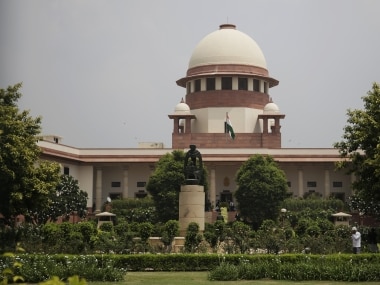The Supreme Court recently restricted the applicability of the RTI Act to Indian courts in a clash between the Gujarat High Court and the Chief Information Commissioner. Supreme Court held that people would have to resort to applications under the Gujarat High Court Rules to obtain certified copies of pleadings from cases instead of applying under the RTI Act. The problem is that the procedure under most court rules is more difficult and arduous than its RTI equivalent, and, unlike the RTI, there is no easy avenue for appeals. The verdict has come under criticism for how it enables public authorities to circumvent the RTI Act by creating their own rules for providing documents.[caption id=“attachment_7888591” align=“alignleft” width=“380”]  The Supreme Court of India. AP[/caption] But the court’s decision to stick with existing court rules that are archaic and obsolete is a stance more reminiscent of a territorial government bureaucracy than a guardian of public accountability to citizens. Pleadings and court documents should be available to the public by default for public interest purposes. The court has missed another opportunity to apply to itself the principles of openness, transparency and accountability that it often expects of other public authorities. Supreme Court’s decision hinged on a determination that, despite the differences in procedure, the high court’s rules were not in conflict with the RTI Act. Under the RTI Act, applicants are specifically not required to provide any reasons when requesting for information while court rules require them to satisfy the court of their good cause to view cases to which they are not a party. The Supreme Court conjectured that the refusal to grant documents under court rules would be determined on the same basis as RTI applications – whether the release of the information is in the public interest. However, it fails to account for the fact that there is no requirement for the decision to be made this way, and that in reality, refusals can be arbitrary and made without much justification. Moreover, there are procedures hard-baked into the RTI that are incredibly beneficial such as a streamlined process of appeals, timeline penalties and the fact that most of it can be done through the mail. However, the court’s reasoning is not new and has been used in previous high court judgments on the same issue to maintain judicial control. Just like in those cases, it was also used to circumvent one of the most powerful sections of the RTI Act – Section 22. Section 22 of the RTI Act contains what is known as a non-obstante clause – which basically says that the provisions of the RTI Act will override existing laws. Non-obstante clauses are used by legislators who use them to avoid any conflicts they anticipated with existing laws. The Supreme Court argued that Section 22 only activates when there is a conflict between another law and the RTI and as there was no conflict between the rules it wouldn’t apply. The end effect is that the judiciary has ignored the public utility of making case documents easily available to the public and maintains control of court documents. A significant amount of judgments impact daily life – criminal cases and writ petitions are an opportunity to hold the government accountable, while commercial cases can have a drastic impact on companies and consumers. In all these cases, the pleadings filed by parties can be used by citizens, journalists, activists and shareholders to better inform the public discourse around the judgments. Judges often indulge in policymaking in PILs on the basis of court commissioned reports that, while cited in the judgments, are not readily available. Open courts are a core tenet of democracy. By opening up judicial proceedings to the public eye, citizens can remain confident in the rule of law. This is a principle that has constitutional sanction and has been upheld time and time again. Citizens can already attend court proceedings to which they are not a party and take down notes of any arguments made orally by lawyers. It is baffling why this approach is not taken with written pleadings. There is a question of confidentiality and privacy of parties in certain cases such as those involving divorce, sexual harassment and trade secrets. But these should be exceptions carved into a norm of openness, rather than justifications for making the entire system opaque. Unfortunately, the judiciary, like any other institution, is helmed by humans afflicted by foibles like territoriality. Even when upholding the open court principle by allowing live telecast of court proceedings the Supreme Court bizarrely retained copyright in any of the recordings. Copyrights are intended to encourage innovation in the public, a context totally inapplicable to judicial proceedings indicating that the true purpose was to retain control of the footage. As the judiciary moves towards a more modern and digitised way of functioning, it is hoped that it can learn how to open itself more to the public. Most court rules are ancient relics of a bygone era where institutions of the State were held to a different standard of accountability. This is partly out of principle and partly out of practical constraints as printing and copying were considerably more expensive and arduous – cost was in fact, one of the justifications to refuse applicability of the RTI. Many of these constraints are not found in a digital system and there is no reason why the old paradigms need to be maintained. Moving to a digital system will require court rules to be updated, which will allow the judiciary an opportunity to correct this judgment by prioritising accountability and openness in judicial proceedings over maintenance of control. The author is an independent public policy analyst who has worked on censorship, mob violence and judicial reforms.
The end effect is that the judiciary has ignored the public utility of making case documents easily available to the public and maintains control of court documents.
Advertisement
End of Article


)

)
)
)
)
)
)
)
)



